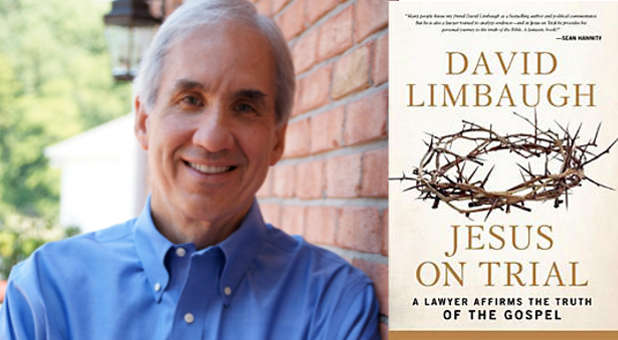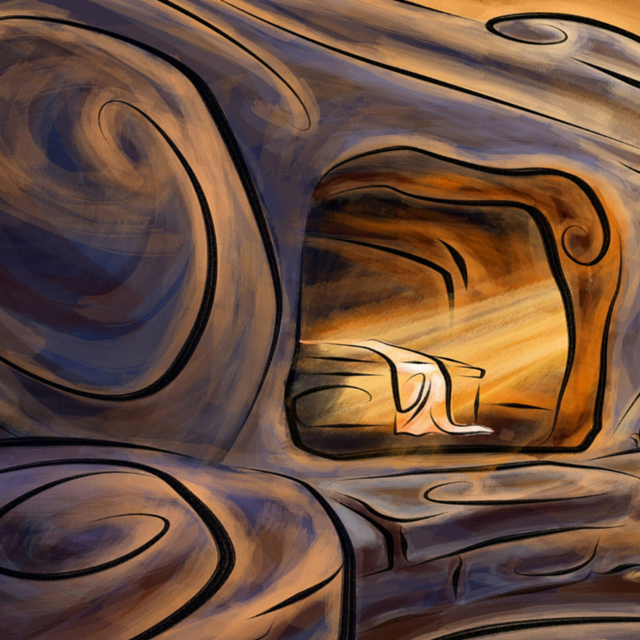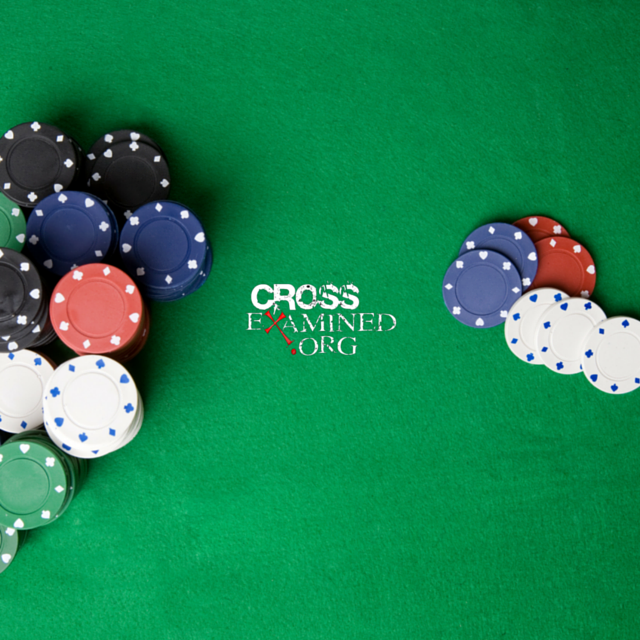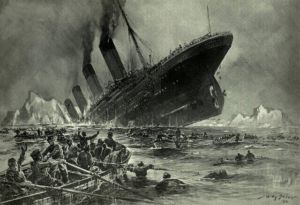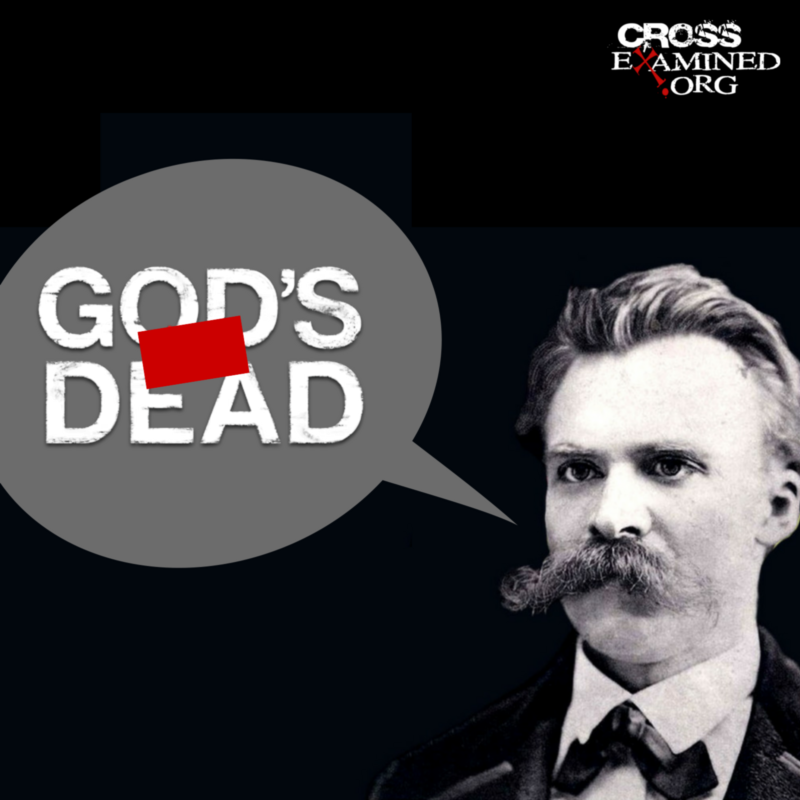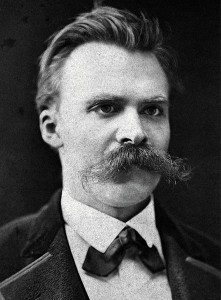by Caroline’s Dad, Neil Mammen
My sweet daughter Caroline Lois died in my arms last week. She was nine days old. We will bury her this week.
This is Caroline’s story, starting with the reflections my wife and I gave at the funeral. Afterwards I’ve included some of the emails sent to our friends and relatives to show the progression of our family’s journey through the darkest hours we’d yet to walk through. We pray that ultimately Caroline’s short earthly life will serve to encourage both Christians and non-Christians to further engage their own beliefs in relation to eternity.
Caroline’s Memorial Service
Venture Christian Church, Los Gatos, CA
Saturday December 5, 2009
Anna
On behalf of our entire family we want to thank you so much for being here today to honor our little girl, Caroline Lois Mammen. We’ve been tremendously strengthened and encouraged by your generosity of spirit and love. We can literally feel the prayers being offered up in this time and again we thank you!
Since most of you didn’t get to meet her, I wanted the chance to tell you a little about Caroline.
Her Story.
Caroline’s due date is actually today, Dec. 5th. She surprised us and was born two weeks early on November 22 at Good Sam. From the moment I laid eyes on her, I fell in love with her. While it was similar with Mary Katherine three years ago, there was something special about Caroline. When I saw her, my heart instantly went out to her and I immediately burst out in tears- which didn’t happen with Mary Katherine. Looking back I think it was because, while we didn’t realize or know anything was wrong at the time, she was a special needs child and these beautiful children have a way of capturing your heart.
Almost immediately, the doctor recognized that Caroline had a cleft palate (a small hole in the roof of her mouth) and she had to be taken to the NICU. They assured me she’d be back soon as it wasn’t serious and they weren’t even admitting her in there. They just needed to monitor her and teach her to eat using a special bottle. I visited her and was so grateful she wasn’t as sick or tiny as the other babies. In fact at 7lb. 3 oz and 20 inches long she looked like she didn’t belong in there.
But things got worse. I don’t consider myself to be a nervous “new mom” but it seemed every few hours that I’d go to visit or get a phone call –the news would be worse than the last time. First, it was the feeding tubes, as she wasn’t eating as much as they hoped. A few hours later, she was on an I.V., as she couldn’t keep her food down. The next day it was the shock of going to visit her and finding her in a complete incubator with tiny purple goggles on her little eyes and lights, as she was jaundice. I couldn’t hold her anymore because she needed the light therapy.
A few hours later, a cardiologist came to visit me in my room. Caroline had two holes in her heart. Even this news I felt I could manage as the condition is relatively common and my best friend’s one year old Ruthie has a hole that is in the process of growing shut. They were fairly sure Caroline wouldn’t need surgery at all. Still I cried as I was exhausted and just really wanted to hold ……and smell…. my baby again. I missed that newborn baby’s breath smell as it’s one of my most favorite things.
After that, while in my hospital room I got another, more serious call. While in the NICU Caroline had “crashed”… There were apparently other heart problems that hadn’t been seen at first – among them a small aorta and as a result her blood supply had failed starving her of oxygen until they were able to restart her blood supply. At two days old, they were transferring her to the Stanford Children’s Hospital in anticipation of giving her heart surgery. I was discharged that night. Exhausted and overwhelmed, I went home with no baby. And Neil followed the ambulance to the hospital.
But the heart surgery was put on hold. While at Stanford, they discovered the lack of oxygen had done damage to her kidneys, liver, and possibly brain. We’d have to wait and pray. And we did. We sent out emails and messages and heard back from so many of you. And we were hopeful and encouraged by them. We believed that God COULD do a miracle. He’d created her (and everything else), He could heal her. But WOULD He? What was the plan for her life? We prayed desperately for her and visited her in the NICU everyday. She was on a morphine drip for the pain, but we sang to her and sat with her and talked to her and touched her as much as we could and took pictures with her. And we loved her. One of her many wonderful nurses said we’d set a record for the number of bows, hats and clips brought in for a little girl in such a short time span.
Throughout the past two weeks there were two moments that were the worst. Obviously one was when Caroline was dying in our arms. The second worst moment was what I call the “Dress Rehearsal” of her death. It was when –one week ago today– we got the phone call telling us she’d likely die.
The call came at 9:00 in the morning. Neil had me leave the room while he talked to the NICU doctor. Then we sat on our bed as he tried to “soften” the most awful news possible. The doctor was “very worried” as her kidneys were putting out mostly blood and the damage seemed severe. She wouldn’t qualify for a kidney transplant, as her heart wasn’t strong enough. Caroline’s death was now a very real possibility. I remember everything turning black and feeling like the bed was going to open up and swallow me. I felt my heart had been ripped from my chest and that I was free falling into the blackest abyss I could imagine. And I didn’t know what to do. I kept asking, “What do I do? I don’t know what to do? How can this happen?” I also remember saying, “How will we go on? How will I raise Mary Katherine?”
Neil held me and we cried and I sobbed. And then my mom came in and she cried with us and I sobbed. And we prayed. And then my mom left us alone and I sobbed some more.
And then Neil started feeding me a life rope. Feeding me lines of truth. He gently said,
“She’s not ours.”
“We don’t deserve her.”
“This happens everyday all over the world.”?“We’re not special.”
“We will go on. We will have more kids. We will not let this harden us.”
And I was comforted.
You may think those are strange things to say and to take comfort in, but let me tell you why it wasn’t for us. You see when I met Neil he had two passions that stood out. One was for something known as apologetics. Apologetics is the logical, rational, scientific study and approach to God and Christianity. It’s the investigation to questions such as, “Is the Bible TRUE? I mean REALLY, capital “T” TRUE? Or is it full of errors?” “Is it a book of fairy tales and wishful thinking?” “How can you trust that it’s accurate? Isn’t it just a copy of a copy of a copy?” “Is there solid evidence that Jesus ever even lived at all much less died and rose again?” “Are the places and people in the Bible real?” “What sources outside of the Bible can back up Biblical accounts of history?” “Is there enough evidence to be convincing? Would it hold up in a court of law?” “How does evidence for the truth of Christianity compare to evidence for other religions?” As many of you know, this is something that Neil writes and speaks on. Why I’m bringing this up is because in that moment -up until that time the worst in my life- I was so thankful that I didn’t have the added burden of questioning my belief and faith in God. And that’s because I hadn’t made the decision based on tradition or emotion. I had a faith that stood
upon reasonable evidence.
Secondly, Neil and I both grew up in homes passionate about theology. For the nine years we’ve been married, we’ve enjoyed discussing the tough questions of life and death and God and reality. Questions like, “Is God good? Uninvolved? Indifferent?” “If God is good, why does He allow suffering in the world?” “Why do BAD things happen to ‘good’ people?” “What about miracles? Who gets them and when and why? Are they only for the REALLY good people? How does my faith play into miracles?” “Does God punish his people?” We read and chew-on and discuss and argue and go to conferences and listen to podcasts on long road trips about these issues because we find them interesting and worthwhile. And they are a part of the diet of our lives. So, when I found myself face to face with that black Abyss, Neil fed me the statements of solid conclusions we’d already thought through …and it stabilized me. I know that for me personally cherubs and clichés of guardian angels and some fuzzy picture of an old man in the sky with a long beard wouldn’t have been enough as my daughter lay dying 30 miles from my house. All of those notions wash away. In fact, even tradition and my religious up-bringing instantly vanished and couldn’t have been less important. But Neil reminded me of these Truths and I grabbed hold of them. They were my lifeline.
“She’s not ours” – He meant that she’s God’s. She, like you and I, were made in His image with a purpose and a set number of days and has a life beyond the 9 months (growing in me) and 9 days on this earth. While we pray she touches your hearts and she changes us– makes us more sensitive, softer and loving– makes this world a better place. Beyond all that, she is a soul eternal. She isn’t a concept or past tense. She’s her own precious person still existing right now.
“We don’t deserve her” – We are fallen, imperfect people who fall short of the glory of God, yet He’s saved us. Every good gift, including the 9 days with Caroline, comes from Him. Throughout our marriage, Neil has made comments whenever blessings have come our way that we are undeserving of them. We’d get a new car and he’d at some point say, “You know we don’t deserve this.” When we bought our house, at some point he’d comment “We’ve been so blessed, you know we don’t deserve any of this” and I’d respond, “I know, I know… you’re right.” When Mary Katherine was born he said the same thing. So when he said we don’t deserve Caroline I knew exactly what he meant. And I agreed. And the blessing of our coming to the conclusion that we don’t “DESERVE” something – that we aren’t owed or entitled anything by God- is that it stops the root of bitterness and anger from taking hold and growing.
“This happens everyday all over the world. We’re not special.” — Again, that’s TRUE. While in one sense we’re all special in that we’re made in the image of God and incredibly valuable to Him, in another sense Neil and I are no more special than any of you. No one escapes suffering or death. When I look out across this room, my heart aches for what I know many of you have gone through and are going through in all kinds of scenarios. And even now- with our daughter right over there- throughout the course of this week we’ve heard from some of you the tragic stories of your lives- and we’ve commented to each other, “How are they surviving that?” “Now that would have been so hard.” I can’t imagine how difficult it must be to lose your mom, to face cancer, to suffer abuse, to manage chronic pain day in and day out.
This is not the last of our suffering. And whatever you’ve been through, it’s not the last of yours either. We aren’t special.
Finally, Neil also said, “We know where she’s going. And we’ll see her again.”
Our daughter, Caroline Lois, is in heaven. She has been HEALED completely. She has a new body. We will be reunited and we can’t wait to see her again.
…
Caroline’s Memorial Service
Part 2: Neil
Our daughter, Caroline Lois, is in heaven. She has been HEALED completely. She has a new body. We will be reunited and we can’t wait to see her again.
To an analytical, logical, skeptical engineer like me this would seem like just a nice sentiment. A nice myth. But the reality is that it may not be true.
“Ah” we may think, “so what if it’s not true, at least it makes us all feel good, and prevents pain, how can it hurt us, it will comfort us. It’s a comforting myth.”
But it struck me that that’s perhaps the mildest of the scenarios. I realized that there is a worst case scenario. What if it’s a lie and the real truth is something completely different, something that by believing a lie results in a terrible terrible fate. A terrible fate that I could have prevented had I studied the evidence. For if it is a lie, I have not only no hope for Caroline but I may be dooming myself and my entire family by believing this myth. It occurred to me that surely it’s worthwhile to look into this. I likened it to someone telling me the bridge has a huge section broken halfway out. Where I can’t see it. Now I may not care when I’m NOT driving towards the bridge. But say, one day I find that I do indeed need to cross the bridge. Even if I don’t believe the reports of the bridge being out, surely it’s worthwhile to look into it.
With my sweet Caroline’s death I am reminded that one day we all need to cross the bridge. We are staring death in the face today. We are in the middle of the storm. And one day all of us will face it.
So I for one, want to be sure beyond a reasonable doubt that what I believe in, is true. That it’s not just a useful myth. But that it is factually TRUE.
Our daughter, Caroline Lois, is in heaven. She has been HEALED completely. She has a new body. We will be reunited and we can’t wait to see her again.
What my wonderful, patient, longsuffering, gorgeous and loving wife said is true. I believe this about Caroline because our Apologetics (the factual evidence for our faith) proves our Theology.
That apologetics allows me to prove using science that God really exists.
That apologetics allows me to prove using historical evidence, facts and logic that Jesus Christ was a real person and that he physically rose from the dead proving that He was God.
If this IS true then it’s also true that Christ is the grave robber.
For as 1 Corinthians 15 says, “if there is no resurrection of the dead, then not even Christ has been raised. And if Christ has not been raised, our preaching is useless and so is our faith. If Christ has not been raised then we Christians are fools to be pitied more than all men.
But as we can prove Christ has indeed been raised from the dead, the first risen fruits of those who have died.
Listen, I tell you a mystery: We will not all sleep, but we will all be changed— in a flash, in the twinkling of an eye, at the last trumpet. For the trumpet will sound, the dead will be raised imperishable, and we will be changed.
Our mortality will put on immortality; our perishable will put on the imperishable. Death will be swallowed up in victory. Then we can say:
“Where, O death, is your victory?
Where, O death, is your sting?”
Thanks be to God for He has given us the victory over death through our Lord Jesus Christ.”
Can I get an Amen?
Our Lord Jesus Christ is the Grave Robber who comes to steal us away.
And thus, now once our Apologetics has proven and verified our Theology, then can our Theology strengthen and direct ou
r Hope. And yes though we are sad and cry and miss our sweet little Caroline, that verified Hope can lead our emotions and give us security, peace, comfort & joy in this wonderful season of Christmas. This season of God’s promise of life.
And that’s why we can truly say: Our daughter, Caroline Lois, is in heaven. She has been healed completely. She has a new body. We will be reunited and we can’t wait to see her again. And what’s great, I can prove that to be the most reasonably, most logical TRUTH.
Some have asked how we manage to be so joyous in these circumstances. It is these things that we have proven. It is these things that we stand on. It is these things that give us a solid ground for our faith and our hope.
Our Apologetics verifies our Theology. Our Theology directs our Hope and our Hope guides our Emotions.
That and the love of a wonderful gorgeous woman who believes in me and believes in us. With her and our dear supporting families who are always close, we can take on the world. I am truly blessed and deserve none of it.
Yet still, many of you have asked me what you can do for me. You’ve asked how you can help us. Can I collect today on that request? You can indeed help us make Caroline Lois’ life more meaningful. Here’s my request. You see one of my passions; one of my purposes in life is to explain this to you.
To show you the scientific evidence that I believe conclusively and reasonably proves that God exists,
The manuscript evidence that proves the Bible is accurate and the historical evidence that proves Jesus Christ rose from the dead showing us he was God.
To show you how and why our Apologetics verifies our Theology. Our Theology directs our Hope and our Hope guides our Emotions.
So here’s my request. Here’s what you can do for us: Let’s go out to lunch or coffee or dinner. Let me show you my evidence. I have five major points. I won’t force them on you. Feel free to disagree every step of the way, it will make it more interesting for one. But let me show you those 5 points. Hear me out. That’s what you can do for me. Those conversations with you will make our friendship stronger and my Caroline’s life that much more meaningful to me, because her life is what allowed us to talk about these normally taboo subjects. Will you do that for me? You don’t even need to pay for lunch. I’ll buy.
I want to close with one thought, if I may. For a while as she lay dying, I thought while I know I will see her again, oh what sorrow that Caroline will never get to live her life here on earth. She lost out.
Many times we think our purpose in life is what we do here on earth. What we do for others. These are all important. But I realized that I’d forgotten that we are not created primarily for the earth. We are created primarily for eternity. You see as the Westminster Confessional says: The Chief purpose of Man is to Glorify God and Enjoy Him forever.
Let me say that again.
The Chief purpose of Man is to Glorify God and Enjoy Him forever.
If we think our chief purpose is to Glorify God here on EARTH we have only a minute fraction of the picture. For if my Theology which is proven by my apologetics is true, we will spend more time in Eternity in the presence or the absence of the Almighty God, than we will ever spend here on earth. Amen.
My dear friends, who have so honored us by being here today, our sweet Caroline’s chief purpose is to Glorify God and Enjoy Him FOREVER. She has not lost out. She has not missed out, she is not lost. She is in fact doing precisely that. Enjoying God.
My sweet kind friends, I wish oh so much, for you to enjoy God as well, for I fear that if we don’t we will lose out. We may not lose a mere 80 years on earth that we thought Caroline had lost, but we may lose something far more permanent and eternal.
Something that Caroline has right now and can never lose.
Thank you.
For those interested in a more detailed account of the progression of Caroline’s story and the journey we took through prayer and a bit of the emotional processing, we’ve included emails and some facebook posts in sequential order.
November 22 at 6:45am
Chris Kent: My sister Anna is in labor! Hopefully baby Caroline will make her grand entrance this time!
Anna Mammen: is thankful for my “Sweet Caroline!” who arrived this morning at 10:40am (13 days early! YAY!!). She is 7lb. 3oz and 20 in. long and we are in love . Definitely is resembling her sister at this point. -Pics to come.. but I need a nap !
November 22 at 2:06pm
Chris Kent: A proud uncle yet again. Caroline Lois was born to Anna Kent Mammen and Neil Mammen today. Congratulations, world!
November 22 at 6:34pm
Anna Mammen Our early Christmas gift. Caroline Lois Mammen
November 23 at 8:08pm
On Tue Nov 24, 2009, at 5:58 PM, Neil Mammen wrote:
Hi family and friends an urgent prayer request.
Our second daughter Caroline Lois Mammen was born this past Sunday, Nov. 22 at 10:40 am. She was 7lbs 3oz and 20 inches. However, she was immediately admitted into the NICU as they found that she had a small hole in the roof of her mouth and two holes in her heart. Normally this is not a problem and can easily be treated. However after 2 days she was not thriving, today she “crashed,” they think she may have an aorta that is too small and is unable to provide enough oxygen for her. They’ve given her some medicine that will alleviate the problem. If it does not work she’ll be taken to Stanford Medical at Stanford University to a cardiologist for immediate surgery. If it does work she’ll still go there but it won’t be as critical.
There’s lots of good news in this. First if this is the actual problem, it can be treated and the operation itself is relatively simple. Second, I’m glad we don’t have socialized healthcare and as a result have some of the worlds most advanced (and expensive) medical services. Third, like my wife reminded me, we’ve always dreamed of having our kids go to Stanford, all expenses paid. J But most of all we are reminded that God is able and He is in control.
Please be praying that the medicine works to remove the urgency and after that she survives the trip there, that she does not catch any infection (hospitals are notorious for that) and that she has no other problems i.e. no development problems. She is also learning to suck/eat with a special bottle to compensate for the hole in the roof of her mouth, which has proven difficult for her. We serve a mighty God and whatever He wills is fine with us at the end of the day of course our heart’s desire is for a full and quick recovery.
Please forward this to family and friends. We will start updating people on facebook shortly.
Neil and Anna Mammen
November 24 at 7:36pm
Anna Mammen is asking for your prayers as baby Caroline is on her way to Stanford hospital for heart surgery tonight. She had trouble breathing all day and was put on a respirator and feeding tube. We are trusting her to God and His perfect will for her precious life. But it’s still hard.
On Tues, Nov 24, 2009, at 7:10 PM, Neil Mammen wrote:
Thank you all, and praise God. Caroline is looking better. She’s pink again (sorry Indian relatives, another very un-Indian looking baby Mammen – but she does have black black hair so far). The medicine they gave her seems to be working. From my limited understanding it seems to confirm the problem is what they suspected. As we speak the EMT’s are
here getting her ready to move to Stanford. It takes quite a while. So she’s out of danger as much as we can tell. PTL. I will go with her to Stanford and will follow with more info at some point.
Meanwhile here’s a website that tells you what I think is happening. I have not talked to the doctor so this is just my own research. It looks very promising but as we all know the problems are the ones that we don’t anticipate like side effects, infections etc. So please do not stop praying. Caroline is a trooper and will give her older sister a run for her money we pray.
http://www.cincinnatichildrens.org/health/heart-encyclopedia/anomalies/iaa.htm
Wed, November 25, 2009 1:43:53 AM
Caroline is at Stanford/Packard Children’s Hospital, they are stabilizing her and trying to bring her back to fully normal before any surgery is done. It may be a few days. The doctor confirmed that my research was correct, it’s either an interrupted aortic arch or a “skinny” aorta (I haven’t found any info on the latter yet). They will confirm after all the tests are run tonight and tomorrow.
The biggest prayer need now is to pray that that there was no long term damage done during the time when her blood was not flowing fully. There are lots of things that could have been damaged. Keep praying please and thank you all so much for all your responses. Keep them coming. While we many not be able to respond individually, each one has been a great encouragement.
Thanks again.
Neil
On Thursday Nov 26, 2009, at 11:54 AM, Neil Mammen wrote:
Hi family and friends,
Baby Caroline is getting more stable by the hour. She’s on morphine so she’s out of pain and sleeping steadily. All vital signs have stabilized or seem to be getting there.
They confirmed that there was some liver damage and some kidney damage when she had a short supply of blood/oxygen. But they said these are usually all reversible and that’s what they are working on. We will know more in a few days. All other scans showed there was no genetic issues with her organs or brain. They are doing a few more tests. We are praying that baby Caroline had no brain damage either. Normally the body maintains supply to the brain at the expense of the other organs so please pray that there is no damage there. The nurse said “We see a lot of babies with lack of oxygen here and usually they recover quite well.”
We are praying that they can do the heart surgery next week as that indicates that she’s strong enough and well on her way to recovery.
Do keep praying. We are thankful for you, your prayers, emails of encouragement and all the blessings we have this Thanksgiving.
Neil and Anna Mammen
Caroline Lois is not improving
November 28, 2009
Today was a very tough day for us. The doctor called and said that though she has stabilized, our darling Caroline’s kidneys are not improving and he is concerned that there is permanent damage to them. Due to her heart condition he said she may not be a candidate for a kidney transplant. They are increasing her medicine to see if she will respond. He also confirmed that the MRI did show some brain damage that was caused when her blood supply stopped due to her hypoplastic aorta. However, he said that they they don’t know yet if it’s permanent or recoverable. Kidneys can recover naturally; or supernaturally if God wills.
As you can see our optimism suffers compared to the last update (see below). We do know she is the Lord’s and His to take to heaven whenever it is her time, we know that as with Paul and King David, sometimes the Lord chooses not to heal according to his Sovereign will. Yet please pray with us for a miracle of healing. We have seen the Lord act supernaturally before in our life with Mary-Katherine (ask me about this sometime); and pray for Him to do so again if He wills. We have been given so much and don’t deserve Caroline, or anything for that matter, but selfishly would like more time to know and love her and see her grow up to be a powerful force in ministry and apologetics (of course).
As I write this we are here at Stanford Medical at the NICU, she is sedated and sleeps so peacefully. We love her so dearly. It’s tough for me as an engineer as I can’t “FIX” it. But she is first and foremost the Lord’s not mine. Not ours.
Frankly this is where the rubber meets the road when it comes to faith, doesn’t it? God exists, I can prove that to be reasonable and logical using science and facts. Christ physically died and rose from the dead, I can prove that to be a reasonable and logical conclusion with a case that could stand up in a court of Law. (If you haven’t heard me talk about this, ask me for my scientific and historical and logical evidence). So if Christ rose from the dead, the accounts of His ability to heal then fall in place naturally. More so His promise of our resurrection. Faith must be based on truth and facts. Our Apologetics (the evidence for the faith) proves our Theology, our Theology strengthens and verifies our Hope and our Hope leads our Emotions. That way when trials come we can be assured and we can say: Sickness has no chance if He wills us to be healed. And if not to be healed, we can truly say: Oh Death where is your victory? O Grave where is your sting? In that glorious day God will dry the tears from our eyes, pain will end and we will never die.
In my discussion with my atheist friends they have looked at pain and said: How can God exist if there is so much pain and suffering? I look at pain and say: Thank You God, that You do exist and provably so. For without a God, pain and suffering would be a cruel heartless cold ending. For how can my atheist friend truly comfort anyone? In his worldview it is all for naught. There is no happy ending.
In the same way, my friends who do not know, or blindly hope, or only guess what maybe beyond our limited physical and natural four dimensions, can only wish that what is out there really exists and “will” themselves to believe that perhaps it is better than what we have here. But what if they are wrong? Where is their assurance? What is their hope based on? Facts or feelings?
Yet, I know emotionally and can prove intellectually that nothing can stop me from spending eternity enjoying Caroline as much as I enjoy Mary-Katherine, her big sister. The only question is if we have to wait a few years to start spending time with Caroline. At this point in her frailness, we pray we don’t.
The battle is not over. Keep praying. God exists and He is able. We now pray that His Sovereign Will is to heal her.
Neil
Please forward this to family and friends not on the list.
Caroline Lois is going home
November 30, 2009
Monday, November 30, 2009 about 3 PM
Caroline Lois is going to go home to her Lord and my Lord very soon. Perhaps tonight.
We are selfishly trying to keep her here a bit longer, here in 4D space, perhaps an hour or two. But do not be sad for us or worry about her or us for that matter, as we have full assurance that she is going to far greater place than she has ever been before and we too will meet her there one day. To tie a few famous phrases together:
“It’s a far better thing I do now than I have ever done before, it’s a far better place I go to than I have ever been before. Father into your hands, I commend my spirit.”
While we are sad and distraught at the temporary separation, it is with joy that we can release her soul to the great healer who again physically and factually proved He was able to resurrect from the dead. We are left behind for we have a lot of work to do here before we meet her there.
Do remember that if there is no resurrection of the dead, then not ev
en Christ has been raised. And if Christ has not been raised, our preaching is useless and so is your faith. For if Christ did not physically rise from the dead then your faith is futile; you are still in your sins. And worse, those also who have fallen asleep in Christ are lost. Yes, if Christ has not been raised then we Christians are to be pitied more than all men.
But Christ has indeed been raised from the dead, the firstfruits of those who have fallen asleep. For since death came through a man, the resurrection of the dead comes also through a man.
Listen, I tell you a mystery: We will not all sleep, but we will all be changed— in a flash, in the twinkling of an eye, at the last trumpet. For the trumpet will sound, the dead will be raised imperishable, and we will be changed. For the perishable must clothe itself with the imperishable, and the mortal with immortality.
When this has happened then the saying that is written will come true: “Death has been swallowed up in victory.”?“Where, O death, is your victory? Where, O death, is your sting?” The sting of death is sin, and the power of sin is the law. But thanks be to God! He gives us the victory through our Lord Jesus Christ.
Our Lord Jesus Christ the Grave Robber.
1 Corr 15.
One of my favorite 80s song was by Petra. Here’s a link to it with the lyrics.
http://popup.lala.com/popup/576742257649335055
Grave Robber by Petra Hebrews 9:27, John 4:14, I Peter 1:24, Romans 8:11, I Corinthians 15:26, 51-55, Revelation 7:17 Words & Music by Bob Hartman
There’s a step that we all have to take alone. An appointment we have with the great unknown. Like a vapor this life is just waiting to pass. Like the flowers that fade like the withering grass
But life seems so long and death so complete. And the grave an impossible portion to cheat
But there’s One who has been there and still lived to tell. There is One who has been through both heaven and hell
And the Grave will come up empty handed that day. Jesus will come and steal us away
Where is the sting tell me where is the bite. When the grave robber comes like a thief in the night
Where is the victory where is the prize. When the grave robber comes. And death finally dies
Many still mourn and many still weep. For those that they love who have fallen asleep. But we have this hope though our hearts may still ache. Just one shout from above and they all will awake. And in the reunion of joy we will see. Death will be swallowed in sweet victory
When the last enemy is gone, from the dust will come a song. Those asleep will be awakened – not a one will be forsakened. He shall wipe away our tears – He will steal away our fears. There will be no sad tomorrow – there will be no pain or sorrow
Where is the sting tell me where is the bite? When the grave robber comes like a thief in the night
Where is the victory where is the prize? When the grave robber comes, And death finally dies.
If you are interested in why I am so confident about the physical, historical and scientific truth about the Ressurection of Christ and the existence of God my I direct you to this web page:
www.noblindfaith.com/sermon/sermons.htm
Thanks. Neil and Anna
Caroline Lois Mammen is home
December 1, 2009
Tuesday, December 01, 2009 12:41 PM
Today Caroline is with her Lord and my Lord.
This morning at 1:10 AM, I held her, as she went from our ever so limited four dimensional space, to the multidimensionality* of eternal life where there are more colors, more sounds, more tastes, more senses and everything is so far far more wonderful that this dim world pales in comparison. Tis truly a far better place that she is now. She was 9 months and 9 days old counting from when she became human in the womb. She was born on November 22nd, 2009.
She went from me, her dad’s arms, to her Father’s arms.
We are planning a memorial service on Saturday, most probably at Venture Christian Church in Los Gatos. We will post details as we know them.
We praise God in all He has given us. We do miss her greatly and feel the sorrow of parting, but do not despair for us or for her. Mourn instead for those who do not know our Lord and lead them gently to Him. Use words.
Thanks so much to all of you who have written or called or posted on our facebook. It truly shows us how much we are loved and cared for. Neil
www.NoBlindFaith.com
*If you are wondering what all the multidimensional references are about, please see this link:
http://www.amazon.com/Who-Agent-Proving-Science-Rational/dp/1448626196/ref=sr_1_1?ie=UTF8&s=books&qid=1260246977&sr=8-1
Anna and I hope Caroline’s story will be an encouragement and a witness to others.
As of today I have over 20-30 offers to do “lunch” and talk about God and Christ from my friends who do not believe, who were either at the memorial service or have heard about our journey and just as importantly, who were very reluctant to talk about these issues before.
To some atheists this may seem “different” but think of Amber’s family who when Amber was killed, decided that their daughter should not die in vain and was responsible for creating the Amber Alerts to protect other children. There are many similarities here, if my atheist friends are really going to hell for all eternity and my daughter’s physical and temporal death can be used to save them from that eternal consequence, surely this is a noble legacy to her life. Surely it’s a nobler legacy that something as excellent and as needed as the Amber Alerts. Amber Alerts may save a child from immediate harm, but it cannot save a child from eternal death.
This is what we are calling Caroline’s Legacy.


